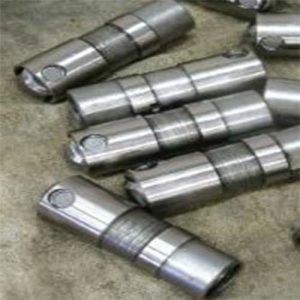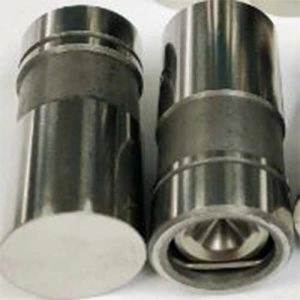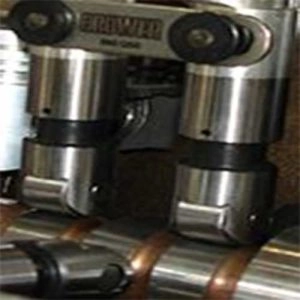The engine tappets, also sometimes referred to as valves, are a series of small cylinders connected to each air and fire valve within the engine, as they are linked to the car's camshaft through swinging arms. Altogether, these components work to form a specific clearance within the valve assembly, ensuring smoother and easier driving.
But over time, the valve lifters can get damaged and malfunction, like any other part of the car, resulting in increased engine noise and disturbance. The same can occur if the oil pressure drops within the engine lifters, adversely affecting their performance and leading to hearing abnormal noises. It's worth noting that these noises should not be ignored and left as they are, as this action can lead to further problems with the car and sometimes cause significant malfunctions. Tapping can occur in quick succession, and it will get worse over time, resulting from a significant decrease in oil pressure, or from damaged engine lifters, producing strange clicking noises, especially when the engine heats up.
In this article, we will discuss engine mounts and highlight the top 3 reasons that lead to their damage. We will also explain some of the malfunctions they cause. Stay with us.
Failures caused by damaged engine mounts

Here are most of the problems and malfunctions caused by damaged engine bearings in cars:
Incorrect combustion in one of the cylinders:If the engine mounts are not working properly, the air and fire valves will not perform their tasks normally. This results in an inability to form the necessary combustion within the cylinders, leading to stuttering, shaking, and a noticeable decline in the car's torque and performance.
Engine Noise Increase:You can clearly hear the sound of a broken or stuck engine bearing in your car, and you'll notice a high ticking noise. This noise becomes louder and sharper as the engine's rotation is accelerated.
Engine Light Illumination:The car's computer is its core and is responsible for regulating its entire operation. It monitors all sensors, devices, and parts in the car. When there is a problem with the engine mounts, the engine cannot operate normally as usual. The sensors will notice this, and then send it as electronic signals to the car's computer, which alerts you by turning on the engine light in the control panel.
Also read: The importance of rotor resurfacing and when it should be done.
Reasons for Engine Mount Damage

There are several reasons that lead to the damage of engine bearings. We list the top three common reasons for you:
Oil Pressure Drop:Over time, engine bearings can experience wear and damage. This usually happens if the oil pressure is low and remains at this reduced level. It can also lead to several other problems such as damage to the oil pump. Additionally, an increase in clearance within the engine can reduce oil flow, thereby creating an issue of low oil pressure.
The distance the car has traveled and maintenance:If you drive very long distances and neglect the importance of maintenance, it's natural for the valve lifters to break down at any moment. Also, maintenance performed by a non-expert technician, or poorly executed maintenance can lead to the same problem. Let's not forget the impact of not regularly changing the engine oil and the siphon, as this leads to faster damage of the valve lifters.
For oil change:The oil viscosity rating is important for reducing internal component damage and maintaining normal and good engine performance. Heavy viscosity car oils, such as 20W-50, can improve oil pressure in hot weather conditions, but they may struggle to flow to all engine components in cold weather, especially when starting the car in the early morning. On the other hand, light viscosity car oils, such as 5W-30, can flow smoothly in cold temperatures, but they are significantly thin and do not provide appropriate lubrication and pressure in hot conditions. For this reason, many manufacturers often recommend using 5W-30 engine oil as a suitable choice for all seasons. In general, the best thing you can do in this case is to review your car's owner's manual, so you can read the oil viscosity rating and know which type you should use.
Change the engine mounts

Many people are unsure of what to do when the engine bearings are damaged and don't function normally. The ideal solution in this case is to replace them. If one of the valve bearings fails, it's best to change all of the valves because malfunctioning of one can lead to failure of the others later on. Generally, you can maintain engine bearings and extend their lifespan as much as possible by following certain guidelines.
Replace the engine oil and siphon regularly, and don't forget to use the appropriate oil for your car, not just any oil.
Use a substance added to the engine oil to enhance its quality, and help clean the bearings.
If you don't know how to deal with the problem, and you find yourself inexperienced and incapable of doing the above things alone to change.Engine MountsYou should not take risks. Rely on a specialist technician and maintenance center to solve your problems.

Comments